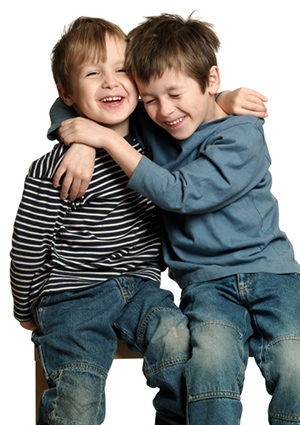FORGIVENESS is a two-way street. While it is important for us to ask for forgiveness from those who we have wronged, it is also important to forgive others.
As the High Holidays approach, why not think about forgiveness within your own family? What does it mean to forgive? What does it entail? And, most importantly, why should we forgive at all?
WHAT IS FORGIVENESS?
 Sonja Lyubomirsky, Ph.D., is a professor of psychology at UC Riverside. In her book, “The How of Happiness,” she puts it simply. “Forgiveness, at a minimum, is a decision to let go of the desire for revenge and ill-will toward the person who wronged you.”
Sonja Lyubomirsky, Ph.D., is a professor of psychology at UC Riverside. In her book, “The How of Happiness,” she puts it simply. “Forgiveness, at a minimum, is a decision to let go of the desire for revenge and ill-will toward the person who wronged you.”
Granting forgiveness has biblical origins. In Leviticus, God tells the Jewish people: “You shall not hate your brother in your heart … You shall neither take revenge from nor bear a grudge against the members of your people … You shall love your neighbor as yourself” (Leviticus 19:17-18).
WHY FORGIVE?
Bottom line: Forgiveness is good for you. Parenting.com writer Lori Erickson quotes in her piece, “Forgiveness 101,” psychiatrist Richard Fitzgibbons, who lays down some key health benefits of forgiveness. “New studies show there are concrete and long-lasting benefits to forgiving,” Erickson quotes Fitzgibbons as saying, “including reduced stress, improved physical health, and better relationships.”
The Mayo Clinic concurs, reporting in its blogpost, “Forgiveness: Letting Go of Grudges and Bitterness,” that forgiveness can lead to “less anxiety, stress, and hostility” as well as "lower blood pressure, fewer symptoms of depression, and lower risk of alcohol and substance abuse.”
HOW TO FORGIVE“One does not decide what happens to him; one decides what he wants to do with what happens to him.” These words come from Rabbi Eliezer Shemtov in his
Chabad.org writing, “
The Art of Forgiveness.” In this piece, he lays out not only the reasons why we should forgive, but he also offers methods for doing so.
In essence, Shemtov says, there are two ways a person can acquire the ability to forgive:
- Ignore Negative Feelings for Revenge — “By overcoming your desire for revenge and to ‘even out the score,’ and behaving as if nothing happened,” he writes, “you will weaken or even eliminate the negative feelings that you have [toward the person in need of forgiveness].”
- Remember the Big Picture — Shemtov suggests would-be forgivers can bring themselves peace with a little humility. He writes, “Once I am aware that everything that happens in the world in general, and in my life in particular, is by divine providence and hence for my benefit, I have no reason to get angry with anybody. No one can choose to do me harm if it wasn’t decreed beforehand by G‑d.”
FORGIVING FOR THE HIGH HOLIDAYS Learning to forgive is an appropriate undertaking any time of year, but it is especially apropos in the weeks leading up to Rosh Hashanah and Yom Kippur. At the beginning of the New Year, we want a clean, fresh start, a year free of animosity and resentment and full of compassion and closeness.
Remember: It’s never too late to forgive.
September 21, 2014